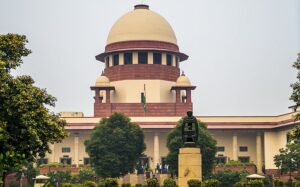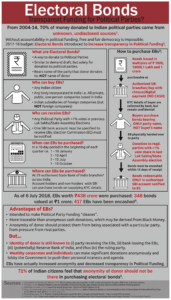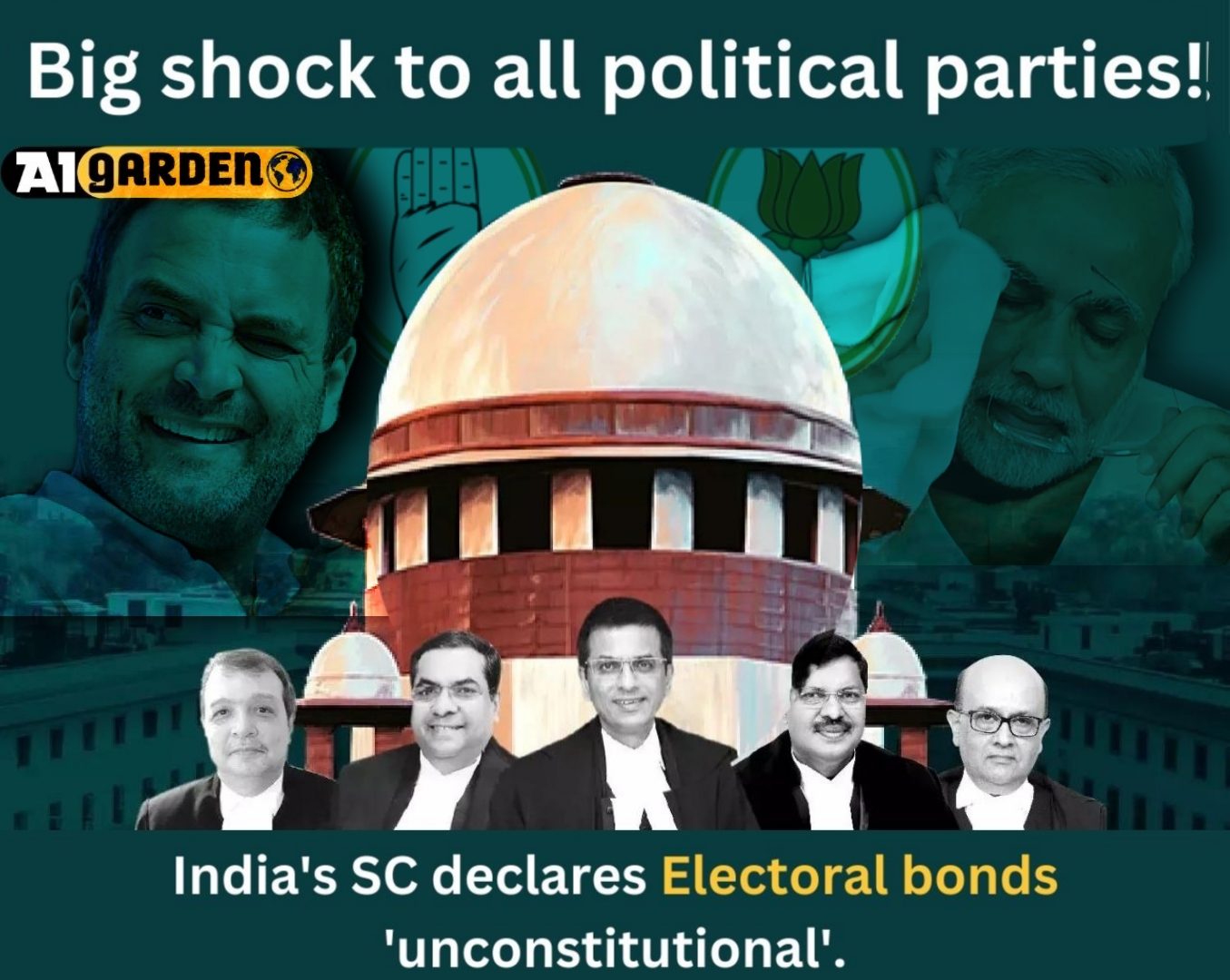The Supreme Court of India declared “Electoral bonds” unconstitutional and patently arbitrary”

India’s Supreme Court has abolished a seven-year-old election funding scheme known as “electoral bonds,” which allowed individuals and businesses to donate money to political parties anonymously and without restriction.
Thursday’s verdict, coming nearly two months before the general election, is viewed as a setback for Prime Minister Narendra Modi’s Bharatiya Janata Party (BJP), which has benefited the most from the system launched in 2017.
Supreme Court Kicks the Kickback Regime!
I. Modi Government, by ignoring the serious objections raised by @RBI and @ECISVEEP, formulated the #ElectoralBond Scheme by amending several laws in 2017, whose salient features are as follows:
(1) Political parties need not disclose… pic.twitter.com/k6Hy3cuZyO
— M. Nageswara Rao IPS (Retired) (@MNageswarRaoIPS) February 16, 2024
In a landmark unanimous decision, the Supreme Court on Thursday declared the electoral bonds scheme, which provides blanket anonymity to political donors, as “unconstitutional and manifestly arbitrary,” as well as critical legal amendments that allow wealthy corporations to make unlimited political donations.
A five-judge bench led by Chief Justice of India D.Y. Chandrachud ruled that the Union government’s scheme, as well as previous amendments to the Representation of the People Act, the Companies Act, and the Income Tax Act, violated Article 19(1)(a) of the Constitution, which guarantees voters access to information about political funding.
The lead opinion, authored by Chief Justice Chandrachud, stated that the absolute non-disclosure of the source of political finance through electoral bonds encouraged corruption and a culture of quid pro quo with the ruling party in order to implement policy changes or obtain a license. The program and changes allowed for “unrestricted corporate influence in the electoral process,” it stated.

Also read about farmers protest
Corporations versus citizens.
The decision revealed the fundamental link between money and politics, stating that “contributions made by companies are purely business transactions made with the intent of securing benefits in return”. It noted that the scheme allowed the inflow of “huge contributions” by companies and multinational corporations with significant business stakes in the country, overshadowing or even concealing the relatively small financial contributions of the ordinary Indian — the student, the daily wage worker, the artist, or the teacher — who believes in a political party’s ideologies without expecting any substantial favors in return.
“Would we still be a democracy if the elected did not listen to the cries of those in need? We question whether the elected will truly be responsive to the voters if firms with large budgets and quid pro quo relationships with parties are allowed to contribute unlimited sums,” Chief Justice Chandrachud stated.
He claimed that the system and revisions increased “economic inequality” by giving companies with financial power an unrivaled advantage over ordinary persons in the voting process and political participation. “This violates the principle of free and fair elections and political equality embodied in the value of ‘one person, one vote,'” Chief Justice Chandrachud stated.
Voters’ rights versus funders’ rights.
The court dismissed the Union government’s argument that electoral bonds’ anonymity encouraged financial contributions through banking systems.
The court agreed that the fundamental right to privacy includes a person’s political allegiance. However, it stated that there must be a balance between informational privacy and voters’ access to information.
Chief Justice Chandrachud distinguished between corporate donations seeking favours and contributions made by people as a reflection of their political ideals. “Not all contributions are intended to change public policy.” People make contributions to political parties that are underrepresented solely to show their support. Contributions given for quid pro quo do not constitute a statement of support, according to the Chief Justice.
SC denies black money argument onElectoral bonds!

The court rejected the government’s assertion that the system was designed to reduce the flow of illicit money into the voting process. It concluded that “curbing of black money” was not a justifiable restriction on the exercise of voters’ basic right to transparency regarding political funding, as guaranteed in Article 19(1)(a).
Also read about uniform civil court bill
The Chief Justice questioned the Union government on how the “absolute” non-disclosure of political funding sources, as implemented in the electoral bonds system, could assist cut black money. “The scheme’s clause 7(4) totally exempts information about electoral bond purchasers. This information is never revealed to voters. “The purpose of obtaining information about political funding cannot be met by absolute non-disclosure,” the Chief Justice stated.
